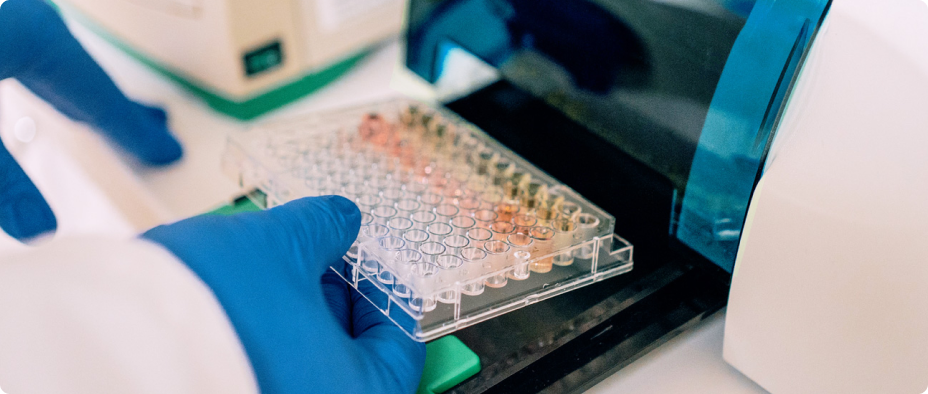Sustainability
Aegros' HaemaFrac® technology presents a transformative impact on sustainability in plasma fractionation, especially when compared to the traditional Cohn process and methanol-based methods. The sustainable advantages of HaemaFrac® lie in its gentler, more efficient design, which minimizes resource use, energy consumption, and chemical waste—issues that have plagued the Cohn process for decades.
Sustainability Challenges
Key Sustainability Issues with the Cohn Process and Methanol-Based Methods
The Cohn fractionation process, developed in the 1940s, relies heavily on cold ethanol as a fractionating agent, requiring precise control over temperature, pH, and ionic strength to separate proteins. This approach has significant sustainability drawbacks:
- High Chemical and Energy Use: The Cohn process relies on substantial volumes of ethanol and sometimes methanol, both hazardous and volatile organic compounds (VOCs). Maintaining low temperatures (near-freezing or below) throughout multiple fractionation steps also requires considerable energy, contributing to the process's environmental footprint.
- Chemical Waste and Pollution: Large quantities of ethanol and methanol are used in each stage, generating a significant amount of chemical waste. This waste often requires energy-intensive treatment before disposal, adding to the environmental burden. Additionally, any leaks or emissions during processing can contribute to air and water pollution.
- Risk of Protein Denaturation and Waste: The harsh conditions of ethanol and methanol fractionation frequently lead to the denaturation (damage) of sensitive plasma proteins. This protein loss lowers yield, meaning more raw plasma is required to produce the same amount of usable therapeutic product—intensifying the demand for plasma collection and the associated environmental impact.
Environmental Impact
How HaemaFrac® Creates a Sustainable Advantage
Aegros’ HaemaFrac® technology addresses these challenges directly, with a process that is gentler, more resource-efficient, and substantially reduces the environmental impact associated with plasma fractionation.
- Reduced Use of Hazardous Chemicals: Unlike the Cohn process, HaemaFrac® does not rely on large quantities of ethanol or methanol to separate proteins. Instead, it uses an electric field to move ions, creating a controlled, energy-efficient separation of proteins without the need for hazardous solvents. This significantly reduces chemical waste and the risk of pollution.
- Lower Energy Consumption: By eliminating the need for near-freezing temperatures and reducing the number of processing stages, HaemaFrac® minimizes energy use. The electric-field-based approach is much less energy-intensive compared to the multiple cold stages required in the Cohn process. This streamlined process not only lowers operational costs but also reduces the carbon footprint associated with plasma fractionation.
- Higher Yields and Reduced Resource Demand: HaemaFrac®’s gentler separation method preserves the integrity and activity of plasma proteins, leading to much higher yields. For example, it effectively doubles the therapeutic product yield per liter of hyperimmune plasma compared to traditional methods. This means less plasma is needed overall to meet demand, reducing the pressure on blood donation systems and minimizing the associated environmental and logistical costs of plasma collection and transportation.
- Minimizing Waste Generation: With fewer processing stages and a simpler setup, HaemaFrac® generates less waste overall. Because it avoids harsh solvents and complex chemical treatments, the disposal needs and associated environmental costs are significantly lower. This contributes to a cleaner, more sustainable production line, aligning with green manufacturing practices and reducing the process's ecological footprint.

Eco Advantage
Comparative Sustainability Impact
HaemaFrac® offers a stark contrast to the Cohn process in terms of sustainability:
- Chemical Reduction: By forgoing ethanol and methanol, HaemaFrac® cuts out a major source of VOC emissions, chemical handling risks, and toxic waste generation.
- Energy Efficiency: Without the need for continuous freezing temperatures and the intensive cooling processes of Cohn fractionation, HaemaFrac® conserves energy—translating to both lower costs and lower greenhouse gas emissions.
- Increased Efficiency and Reduced Demand: With double the yield per liter of plasma, HaemaFrac® significantly eases the burden on plasma collection systems, meaning less plasma and fewer resources are required to produce the same volume of therapeutic products.
HaemaFrac® sets a new sustainability benchmark in plasma fractionation by addressing the inefficiencies and environmental impacts of traditional methods like the Cohn process. Its elimination of hazardous chemicals, reduction in energy use, increase in product yield, and overall minimization of waste align HaemaFrac® with sustainable production principles that are critical in today’s biopharmaceutical industry. By adopting HaemaFrac®, companies not only gain operational efficiencies and cost savings but also contribute to a more environmentally responsible healthcare system. For investors, this technology represents a forward-looking investment in sustainability and a key step toward greener biomanufacturing.